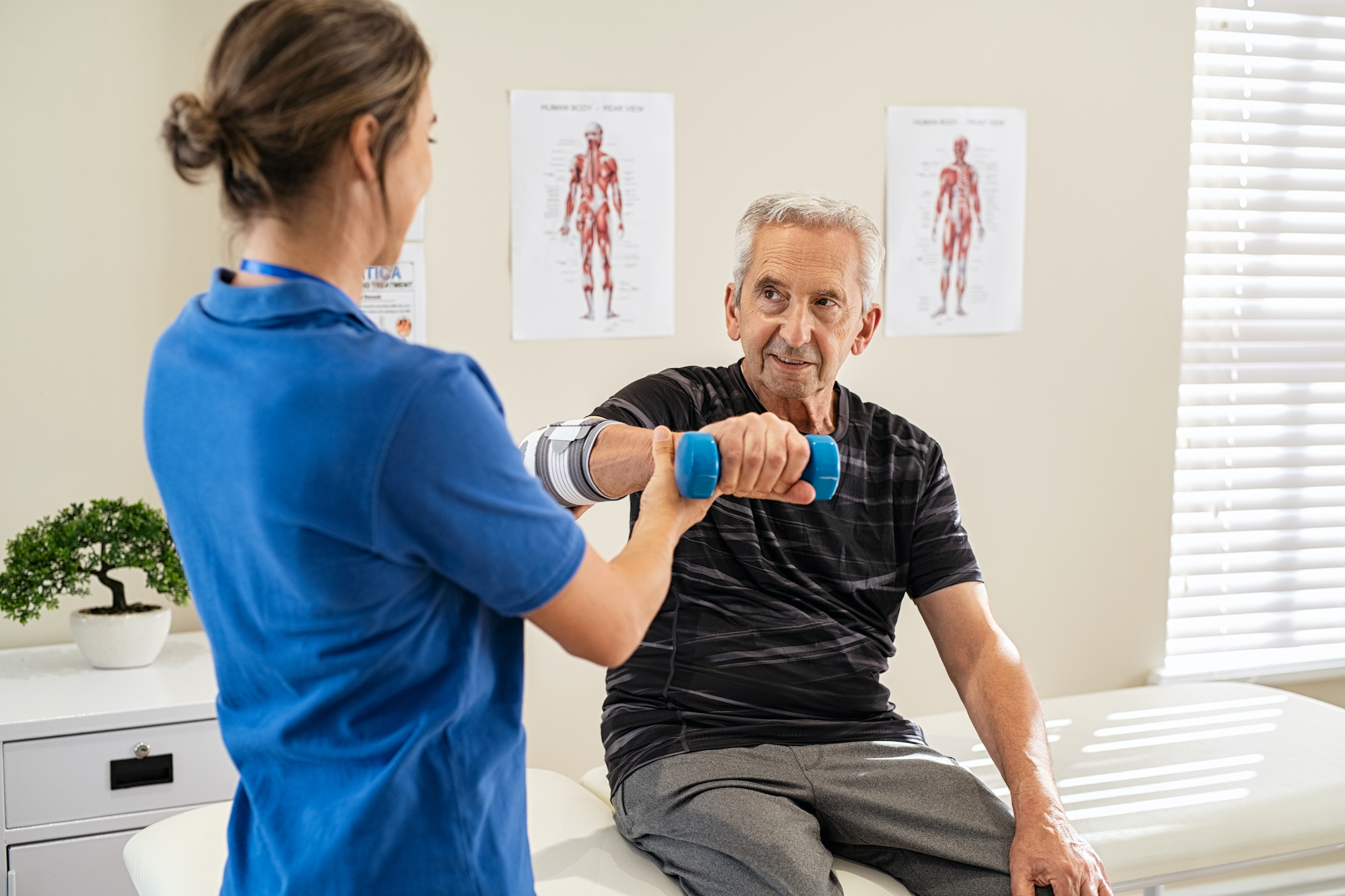Recognizing The Person In Each Patient Will Strengthen
Your Relationship And Improve Long-Term Outcomes
Physical therapists, like all healthcare providers, have an array of duties and responsibilities that are put in place to ensure that they are providing the best possible care for their patients. But for many therapists, the sheer volume of these responsibilities, combined with the often fast-paced environment of a clinic and the high demands for patient visit rates and turnaround, can make it extremely difficult to meet all expectations without some type of a tradeoff.
In this type of environment, when something has to give, some therapists may end up spending less time with patients and fail to give them the attention that they each deserve. But sadly, this can come at the peril of both the therapist and the patient. Not only does it fail to meet the standards of high-quality care that all physical therapists should be providing, but it can also lead to worse outcomes, as research has shown that patients who have a positive interaction with their therapist are more likely to experience improvements than those who do not.
It is therefore important for physical therapists to regularly remind themselves that a positive patient-therapist relationship should always be a top priority of their care, and to continually learn ways to improve upon these skills. At a 2017 Placebo Symposium held in Sydney, Australia, healthcare experts were asked to list which universal lessons they felt were essential for every healthcare provider to be aware of, and among these were the following:
- Support patients in developing helpful expectations about their treatment
- Always remember that you’re treating people, not tissues
- Use words wisely, as they can both heal and harm
- Listen to your patients, and show them that you’re listening
- Talk with your patients, not at them
- Realize that learning communication skills takes time and intensity
- Emphasize both empathy and competence in your interactions with patients
- Develop a better understanding of research methodologies for studying treatments and their effects
The author went on to describe some of the key ways the patient-therapist relationship could be improved upon by breaking down every healthcare encounter into four components: a person seeking help, a person hoping to deliver help, a treatment ritual, and a social context. By finding ways to understand and address each of these components, there is significant potential to improve patient outcomes. In particular:
- Physical therapists should first make efforts to understand details about the person seeking help (ie, the patient) such as how they identify with their condition, how they frame recovery, and what their main concerns are
- Therapists should also prioritize understanding the person hoping to deliver help (ie, themselves) by studying how they view their contribution, how they view the person seeking help, how they frame their treatment and recovery, and the context in which they’re given the authority to help
- Regarding the treatment ritual, therapists should be more cognizant of how they describe the interventions in each treatment plan by choosing their words carefully and avoiding language that make be more likely to turn patients away from their care
- Finally, therapists should examine the social context for therapy, such as how different communities perceive health care in general, physical therapy specifically, and various conditions, what language is used regarding health care and how this language evolves over time
Here at Applied Continuing Education (ACE), we believe that a positive therapist-patient interaction should be at the core of everything we do in the field, and these principles are integrated into our two physical therapy continuing education courses (“Weight Management for Rehab Patients” and “Shoulder Pain and Dysfunction”). If you’re interested in improving your communication skills with patients and would like to learn more about our courses, review the ACE website to see if the courses align with your needs and values. You can also contact ACE at 781-229-8011 or info@physicaltherapyceus.com, as Mike and Justin are both more than happy to discuss our courses and answer any questions you might have.

